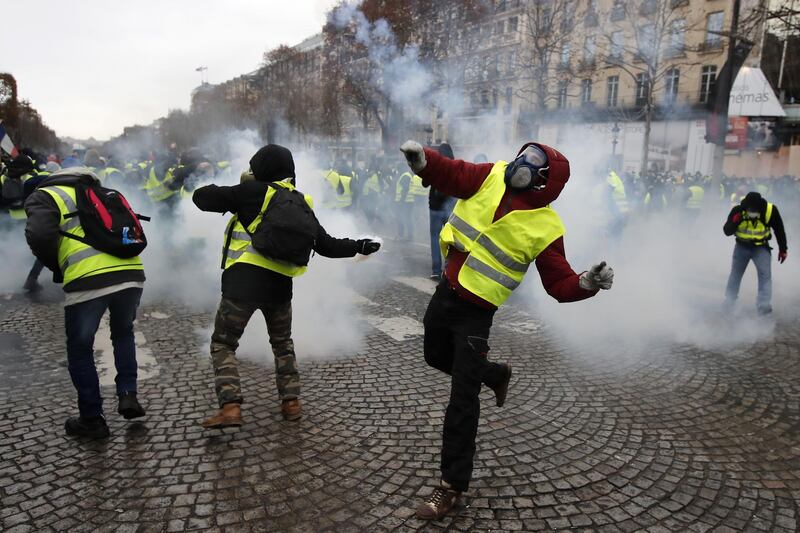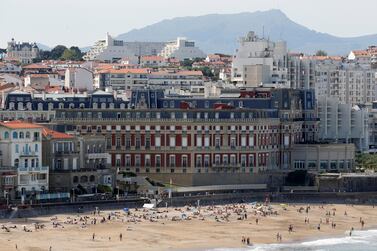Flocks of climate and anti-globalisation campaigners have teamed up with Yellow Vest and Basque independence activists ahead of a G7 meeting in this weekend to confront the growing global divide between the poor and the wealthy.
50 NGOs and activist movements are meeting at a “counter-G7” summit in the twin cities of Hendaye, France and Irun, Spain on the border of the two counties.
The counter summit is 30 kilometres south of Biarritz, where the G7 meeting will be held on Saturday to Monday.
The Yellow Vests are planning their 41st Saturday demonstration in Biarritz this weekend. The French government plans to deploy over 13,000 police to secure the G7 summit.
“The cynicism of the G7 meeting is that it has made inequality the central theme of the event, but it is these rich countries’ very policies that create and strengthen inequality,” said Sebastien Bailleul, a spokesman for the so-called Alternatives G7.
Mr Ballileul said he saw no problem with the different activists collaborating, despite the yellow vest movement growing from a protest on green taxes for fuel and includes far-right figures.
The spokesperson said that the summit would have been a failure if the yellow vests, France’s major social movement, hadn’t been there. Malika Peyraut, spokeswoman for Friends of the Earth – a company which is also attending the summit – supported Mr Ballileul’s statements on the activist group’s participation.
The news comes as an Oxfam report is released, saying that although the G7 summit is devoted to “the fight against inequalities”, it actually fuels global economic disparity.
The report, called "the G7's Deadly Sins", said: "Income inequality has been rising in all G7 countries since the 1980s. The poorest 20 per cent of the G7 population receives, on average, only 5 per cent of all income earned from work, while the richest 20 percent receives about 45 per cent.
“With the exception of Japan and Canada, this gap has increased in all G7 countries since 2004, especially in the UK and Italy,” the report added.
It added that wealth inequality was also on the rise, with more than half of the total global wealth is owned by people living in G7 countries. The richest 10 per cent of the population in all G7 countries owns approximately half or more of the country’s wealth, while the poorest 50 percent owns 10 per cent or less.
To effectively reduce the gap between the poor and the rich, Oxfam called for “concrete plans and a clear deadline” and "the introduction of an effective minimum tax rate in all countries, set at an ambitious level”. It also called for more investment in public and free universal services, as well as a concrete measures for climate justice with high carbon emission reductions.







